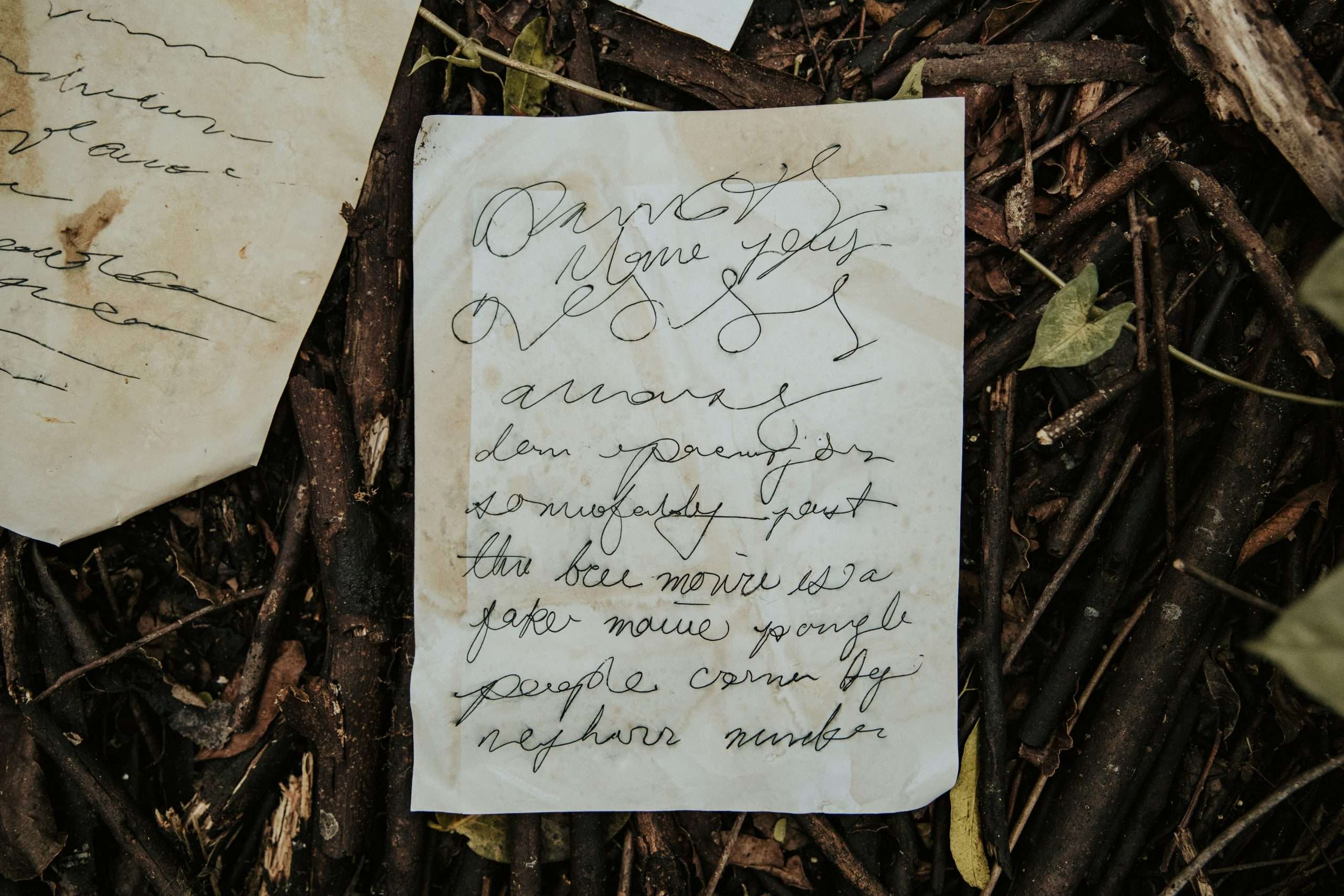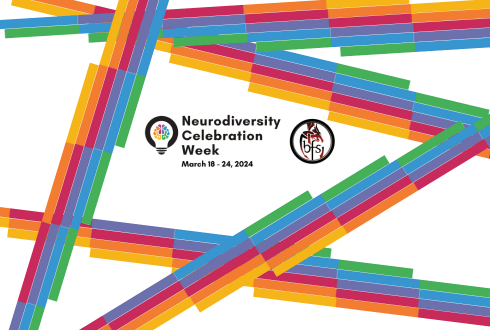We’ve had such a wonderful reception to the articles we’ve shared this week, Neurodiversity Celebration Week—from big, cathartic discussions in the BFS member Discord to members wanting to share their own articles. This one comes from Kit Whitfield, who shows you don’t need an *official* diagnosis to recognise yourself in ND traits, especially given the suspected genetic nature of these things.
I’ve got a funny story about how I found out.
Once upon a time, I was supporting someone meeting their neurodiversity coach. Because they have ADHD, I’d helped them fill out the form; they have form trauma, I’m an old lag at helping neurodivergent people with forms, because somehow – somehow – I keep ending up with neurodivergent friends. Strangest thing, that.
‘So,’ said the coach to my ADHD pal, ‘before we start – have you considered you might have dyspraxia as well?’
‘Why?’ they asked. ‘What’s dyspraxia?’
‘Well,’ she said, ‘I’m looking at the handwriting on your form.’
‘Er…’ I entered the conversation. ‘That’s MY handwriting. What’s dyspraxia??’
She screen-shared an infographic.
I read it.
Yeah, my handwriting is bad; I’ve been hearing that since the day I picked up a pen. Sometimes even I can’t read it. But there were all these … other things.
Clumsiness. Well, yeah. I wasn’t just bad at school sports; I was the kind of bad gym teachers find personally offensive.
Sensory sensitivities? Well, yes, you will be very frustrated borrowing clothes from me if you don’t like smooth, stretchy artificial fabrics.
(Clumsiness might not just be clumsiness: Photo by Emily budd on Unsplash)

Literal thinking? Well, a good metaphor is cakes and wine to me … but I am easy to wind up. Gullible. I insist it’s not funny to tell me something outlandish and watch me fall for it because I’m such a soft target it’s not even a challenge, but I have yet to convince any of you bastards.
Trouble falling asleep because my brain won’t stop? Yawn.
Bad sense of direction? I don’t even know what a sense of direction would feel like.
Easily upset? Don’t be so mean!
Daydreaming? I write fantasy books, for heaven’s sake.
I saw a cheery little infographic, and watched my life roll up like a scroll.
Not just because it answered that old PE class question of, ‘What’s the matter with you?!’ But because it answered something else too.
My son is autistic as well as having ADHD, which means a lot of people assume I must be on the spectrum too. These things run in families and you neuro-audit your life when your kid is diagnosed. I know I don’t have ADHD, but I did wonder about AS, because apparently I ping some people’s A-dar but not others’.
The thing is, being told ‘I bet you’re autistic’ bothered me – and not because I object to autism. I have plenty of AS friends and they’re great. My favourite ever neighbour is the guy who, when I compared the cactus cornucopia in his front garden to Kew Gardens, gave me a passionate and fascinating lecture on why those guys weren’t proper cactus-fanciers. I don’t know if anyone ever assessed him, but I’d never had such a great over-the-fence talk in my life. This is the good stuff.
But I’d heard my autistic friends – female, like me – discussing their shared experiences, and it never felt familiar. These women were some of my favourite people and I loved their candour, their whole-heartedness, their authenticity – but when it came to talking about how it felt from the inside? That wasn’t how I felt. The autism boot didn’t fit; it chafed.
But still, people could tell there was a little spice in my sauce.
I saw that infographic, and I discovered something. Maybe I just didn’t know which spice?
Because then I remembered something: I’d once heard of dyspraxia in childhood. I’d thought, passionately, ‘Oh, I wish I had that! It would be such an excuse for not being able to do … the things I can’t do.’
I was too young to draw a conclusion from that thought. I just knew I was sick of missing rounders balls and wondering how you were supposed to dance and getting yelled at in PE by teachers who couldn’t believe anyone could be as bad as I was without slacking. Also, though I didn’t know it was relevant at the time, of being told my handwriting was appalling, that I nattered on, that I was a daydreamer.
Autism was a boot that chafed, but dyspraxia? That was a pair of fluffy slippers for my weary, clumsy feet.
And as an adult? Possibly also stolen valour; that’s the problem. My handwriting is illegible, but I can sew pretty well. (The fabric holds the needle steady for me. It’s a woven cheat code.) I turn the wrong way out of shops so often my husband was bewildered, but dyspraxia is supposed to bring memory problems and my memory is pretty good. I can’t bear the touch of wool, but I can organise myself fine and speechify on my feet like nobody’s business, and dyspraxic people are supposed to be disorganised and have speech and language problems. I have yeses and nos on that list. Neurotype isn’t always simple.

But I keep coming back to the writing.
Not the handwriting; sod that, it’s a hopeless case and we live in a blessed age of keyboards. No: fiction writing.
I love a good editor, and I try to be a nice editee, but there’s no point pretending I’m an easygoing one. I dispute every comma. I haggle over syllables. If you rewrite a sentence for me I’ll accept that there was something about the original one that didn’t please, but I can’t leave their new one alone: I have to change it again, to sand and weight and rehang it until it’s right for its place.
And there are certain words I keep using to justify being such a fusspot. The rhythm is wrong. That change throws off the beat of the sentence. If we add a word here I need another one there to keep the balance.
Rhythm. Beat. Balance. The page is the only place I know how to dance.
As long as I can remember I’ve wanted to take off my body like an ill-fitting dress. But on the page, I can slip out of it. I wriggle down inside it till the only thing my body feels is language: that metrical, gymnastic, muscular thing that pulses and leaps and reaches a speed beyond me.
I’m not a dancer. I had to learn to be the drum on which the dance is played.
We become writers for a lot of reasons, but I have a sneaking suspicion that for a lot of us, it helped to suck at something. Not necessarily motor skills; we all have our own quirks. And not necessarily a neurodivergence; that might actually make you better at some things. But I’d bet a small sum that for most of us, it did our fiction a power of good that we were really, really rubbish at something else.
Just think how different life might be if I’d only been ordinarily bad at gym.


